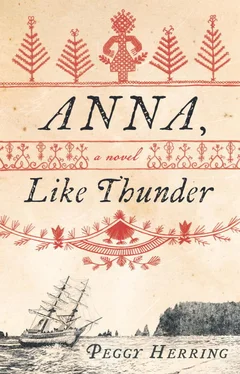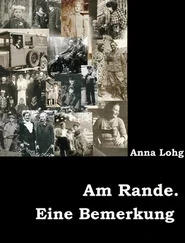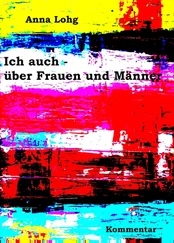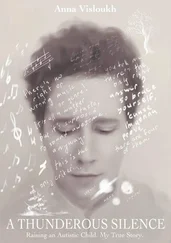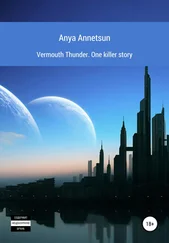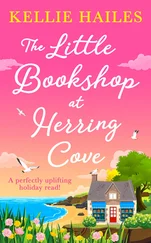“Why?”
“You don’t know? Even old serfs like me know,” he scoffs. “It’s ancient practice.”
“So, what’s it supposed to do?”
“It makes the soil richer. The ash goes into the dirt. Whatever is growing here will grow stronger next year because of it.”
“Won’t they burn down the forest?”
“I doubt it.”
“It doesn’t make sense.”
“It doesn’t matter whether you think it makes sense. It works. People figured it out a long time ago. Long before your Tsar started preaching about the Enlightenment, and stopped listening to the people.”
He sounds like my mother when my parents would disagree.
The men who are digging create a narrow ditch as long as a koliuzhi house. Then they start to curve the ends of the trench inward. Two men join them, starting a parallel ditch some distance away. They eventually curve the ends of their trench inward as well, until the two meet and form a large circle.
The Aleuts and a couple of Kwih-dihch-chuh-aht men are sent away for water. The baskets bounce on their backs until they disappear into the woods.
The women clear away dead grass. We comb with our fingers like we’re brushing hair and make a pile. When our heap grows tall, the youngest children stomp it down. They throw themselves into their task, rolling, laughing, and pushing one another. A girl shrieks when she uncovers a snake. It slithers away, children chasing it until they lose sight of it.
While they’re picking dry grass from their hair and clothing, and throwing it at one another, the water bearers return.
Then I smell smoke. An older man with a hide breechclout rises from a crouch. He’s just lit the heap of dry grass. The children cluster around the tiny flames and tease one another. How did the old man manage to light a fire? Did he bring an ember?
Does he have a tinderbox?
Smoke billows toward my face. I back away, and circle around until I come to the other side. The flames are spreading rapidly toward me, but the smoke flies in the opposite direction. People poke the fire with sticks, not stirring it up, but containing it. They stay one step ahead of the fire’s leading edge. Whenever a wayward flame extends like a tongue beyond the outside of the trench, it’s doused with water. The burning edges sizzle and black smoke rises.
The flames are cleverly shepherded into a circle that burns in on itself.
Everyone’s drawn to the fire. It’s easy to come close because it’s so contained. Right at my feet, a fern catches and flares, as copper as the butterflies’ wings, and it remains copper-coloured while everything around it turns black and grey. What strange alchemy. It should have fallen as ash. But it continues to hold its feathery shape, glowing like it’s being forged at the blacksmith’s.
I haven’t seen a calendar in many months. It’s not spring. But I know.
“Timofei Osipovich!” I call.
It’s my mother’s fiery fern. I’m certain of it.
“It shows itself only one day a year,” she’d told me. “The one who finds it will become rich.”
I hadn’t believed her. There were many ways to become rich and none of them involved finding a fern in a forest. But she’d told me to stop thinking of wealth so narrowly. “These days, that’s what they’ll tell you, but the old, old peasants, they know better. And they all say the fiery fern promises prosperity in wisdom and grace.”
Everything about the koliuzhi’s place has surprised and confounded me. I was told this land was barren and desolate and sometimes it is, but mostly it’s not. I was also told the people are brutal and unforgiving—perhaps some are but I’ve seen generosity that I’ll never be able to repay. Our Enlightenment has given us knowledge and harmony, but perhaps it’s just a raindrop falling into an ocean. Why shouldn’t the fiery fern show itself here?
“Timofei Osipovich!” I cry again. I look around, trying to locate him.
Smoke envelopes me. Ash fills my throat. I cough and choke. The smoke billows up again, a grey wall, and all I can see through it is the glow of the fiery fern. I must not lose sight of it. This thought sticks with me as I tumble through the smoke and into the fire.
Light. Smoke. Crackling. A jerk on my arm so strong it could tear me apart. I’m thrown like an old sack. I roll and roll and roll and roll. Then I stop.
“Madame Bulygina!” Timofei Osipovich bends over me. He leans so close his hair brushes my face and each strand feels like he’s plunged a knife into my cheek. “Are you all right?”
Pain radiates everywhere in my body. My knee. My elbow. My belly is being torn out. Shadows surround me.
Timofei Osipovich grits his teeth and shouts, “Say something!”
Then he disappears. Everything goes black.
An old woman with a face like wrinkled velvet gently pulls my lower lip open. She hums a song I’ve never heard. With a mussel shell ladle, she dribbles liquid into my mouth. I’m dying of thirst, but what she feeds me burns my throat. I cry out, and make no sound. Only a hiss of air escapes.
It’s silent here, wherever I am. It smells of smoke and cedar. I can’t recall coming here. The old woman’s face swims into focus. It’s so large it fills my field of vision. Her eyes are like bright stars that pierce the velvet.
“Help me,” I try to say, but nothing comes out. The old woman watches me. I try to sit up, but the mere thought exhausts me. I reach for her, but my arm won’t move.
“What happened?” I want to say but my throat is as dry as sand and my words are nothing more than puffs of air.
Despite this, the old woman answers. “You fell into the fire—or perhaps the children pushed you. Do you remember? They were playing and they may have knocked you down by accident. Now rest. Everything will be just fine.”
Pain undulates through my body, a cat’s paw scuttling across the surface of the ocean, a serpent with two heads pulling in opposite directions.
The old woman with the ladle disappears.
The path is so wide and clear that I begin to doubt the certainty with which I set off on this journey. It’s unnatural. The trees, the undergrowth, the moss, the mud—they’re here—but they’re far off the path, a distant shadow that means nothing. But then all trails change with the seasons, don’t they? Perhaps I just can’t recognize this path yet.
The trail begins to climb. It’s easy at first, just a slight incline, but then it becomes steeper. Rocks have forced themselves through the earth. They’re teeth that chew up the path. Still I follow, setting one foot in front of the other, trusting that this is the way to go. Then the path turns sharply and climbs in the opposite direction, and I doubt myself once more.
For a long time and a short time, I keep walking. My feet are cut and bruised. They’re on fire. What happened to my boots? My bones ache and press against my skin as though trying to break free just like the rocks on the trail.
I turn with the footpath again. Something ahead glitters.
It’s my silver cross. I should be surprised, but I’m not.
I must recite the incantation first. I picture my mother’s face, her rosy lips. I don’t really need them. Ever since I promised, I’ve never forgotten.
“Earth, earth, close the door
One necklace, nothing more.
Earth, earth, I command
One necklace in my hand.”
I open the clasp and once more fasten the chain around my neck.
The pain comes in waves like the surf, roaring up my body, then falling back down again in a rush of sand and stone. The old woman’s hand is like my mother’s—cool against my forehead and light as a feather. I don’t need the medicine in the ladle. Her hand will cure everything, and as long as she leaves it there, I can bear this pain.
Читать дальше
